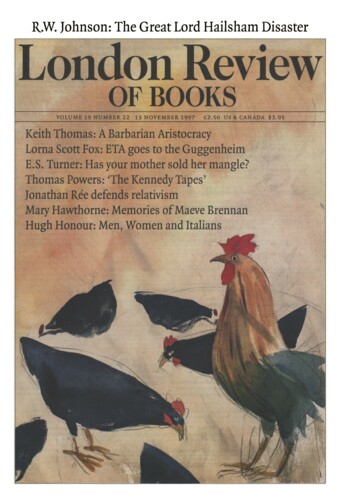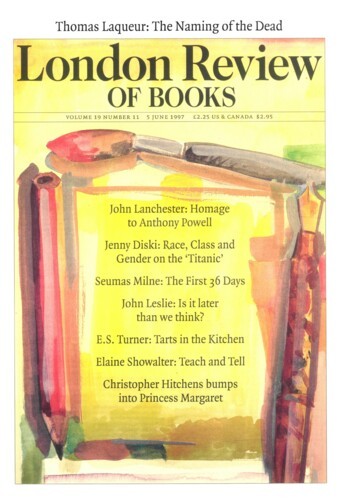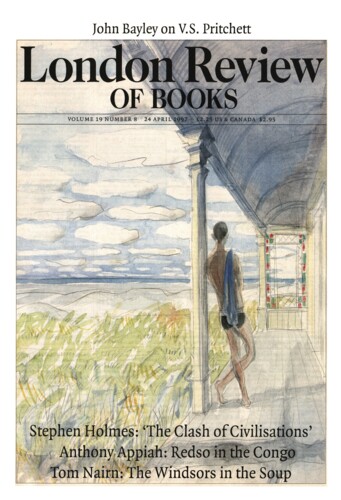Subsistence Journalism
E.S. Turner, 13 November 1997
On 19 October 1844 the overweight William Makepeace Thackeray – if his travel diary tells the truth – laboriously climbed the Great Pyramid of Cheops and pasted up banners advertising Punch, ‘thus introducing civilisation to Egypt’. The Egyptians put up with this sort of thing. Thomas Holloway, the great pill-maker, is supposed to have introduced eupepsia to Egypt by advertising his product from the same vantage-point. Punch at least seems to have established a lasting reputation along the Nile, because it was by those shores that the young Mohammed Al Fayed eagerly turned its pages and developed, as he says, an indelible affection for British ways. Four years after the 151-year-old magazine folded, the Harrods pharaoh revived the title on a budget which, according to the author of this book, would have been ‘beyond the fantasising powers’ of Punch’s founders. But the founders would have boggled at many other developments in the history of their threepenny comic, not least the fact that, early this century, it could claim to have had five knights on its payroll – two editors, two cartoonists and one Parliamentary correspondent. That was the biggest Punch joke of all.’‘





